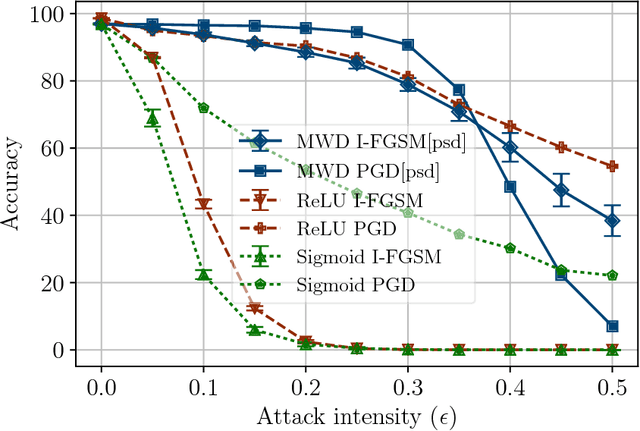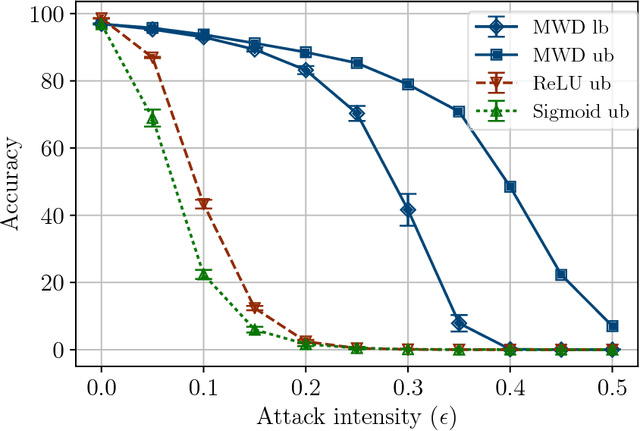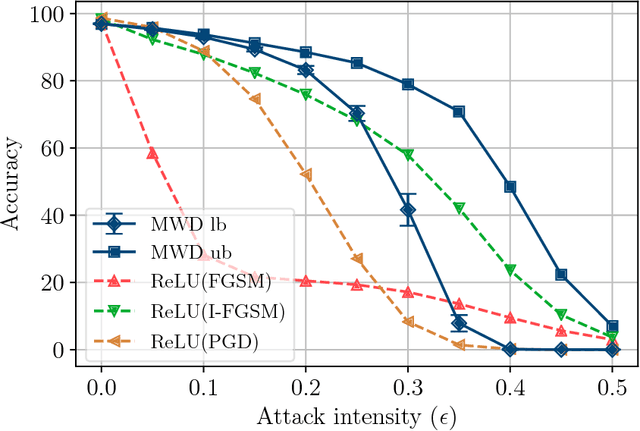A New Family of Neural Networks Provably Resistant to Adversarial Attacks
Paper and Code
Feb 01, 2019



Adversarial attacks add perturbations to the input features with the intent of changing the classification produced by a machine learning system. Small perturbations can yield adversarial examples which are misclassified despite being virtually indistinguishable from the unperturbed input. Classifiers trained with standard neural network techniques are highly susceptible to adversarial examples, allowing an adversary to create misclassifications of their choice. We introduce a new type of network unit, called MWD (max of weighed distance) units that have a built-in resistant to adversarial attacks. These units are highly non-linear, and we develop the techniques needed to effectively train them. We show that simple interval techniques for propagating perturbation effects through the network enables the efficient computation of robustness (i.e., accuracy guarantees) for MWD networks under any perturbations, including adversarial attacks. MWD networks are significantly more robust to input perturbations than ReLU networks. On permutation invariant MNIST, when test examples can be perturbed by 20% of the input range, MWD networks provably retain accuracy above 83%, while the accuracy of ReLU networks drops below 5%. The provable accuracy of MWD networks is superior even to the observed accuracy of ReLU networks trained with the help of adversarial examples. In the absence of adversarial attacks, MWD networks match the performance of sigmoid networks, and have accuracy only slightly below that of ReLU networks.
 Add to Chrome
Add to Chrome Add to Firefox
Add to Firefox Add to Edge
Add to Edge